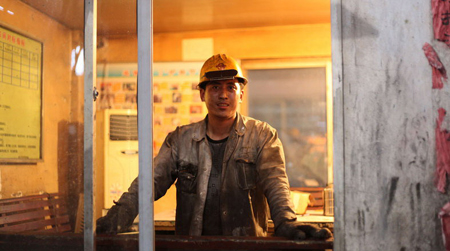Top Biz News
Steelmakers rattled by price shift
By ZHANG QI (China Daily)
Updated: 2010-03-31 09:58
 |
Large Medium Small |
|
 |
|
A worker at Liaoyang Iron and Steel Company, Liaoning province. There are 1,200 steel mills in China, but only 112 have licenses to import iron ore at long-term prices. Unlicensed firms have to buy iron ore from the spot market. [China Daily] |
Small mills will suffer rising costs, but changes may level playing field
BEIJING -- The shifting of a 40-year-old system of setting annual iron ore prices to a short-term pricing mechanism may shake up the Chinese steel industry by creating an even playing field for all steel mills - large and small - in terms of raw material costs.
Vale wants a new pricing system every quarter, said Pedro Gutemberg, director of marketing and research at Vale in Beijing on Tuesday, speaking at an industry conference.
"A more time-adjusted pricing mechanism is needed in order to better reflect real market prices," he said. "Benchmark prices are over. This is a market-oriented industry."
That shift may be of some value to smaller steel mills.
"Vale has offered quarterly priced iron ore to us, which means we could buy iron ore at the same prices that large steel mills pay," said a sales manager at a small, private steel mill that doesn't have an iron ore import license.
There are 1,200 steel mills in China, but only 112 have licenses to import iron ore at long-term prices. Others need to buy iron ore from the spot market.
"You cannot say it's a good thing for small steel mills considering surging iron ore prices, but you can say large steel mills and small steel mills will now be at the same competitive level in terms of raw material costs," said the salesperson, who requested anonymity.
"And as far as I know, BHP and Rio will only retain the quarterly pricing offer with existing customers that hold import licenses."
Sumitomo Metal Industries Co, Japan's third-biggest steelmaker, was quoted by Bloomberg as saying it agreed to pay Vale between $100 and $110 a metric ton for the quarter starting on April 1, spokesman Toshifumi Matsui said on Tuesday.
The quarterly pricing agreement with the Japanese steelmaker is nearly double the $60 per ton paid in last year's contract.
Spot prices rose higher on Tuesday, landing at around $150 per ton after stripping out freight costs.
However, Chinese officials and some Chinese steel mills with long-term pricing agreements reiterated their opposition to a change in the pricing mechanism.
Jia Yinsong, an official at the Ministry of Industry and Information Technology, said at a conference on Tuesday that China opposes the three global miners shift to spot prices because that pricing system will create financial risks for some Chinese steel mills.
"We of course prefer benchmark prices because an annual pricing system means we will have stable raw material costs for the whole year, and according to historical records, long-term prices are usually lower than spot levels, except during the financial crisis," said Wang Yongsheng, CEO of Shandong Taishan Steel Corp.













